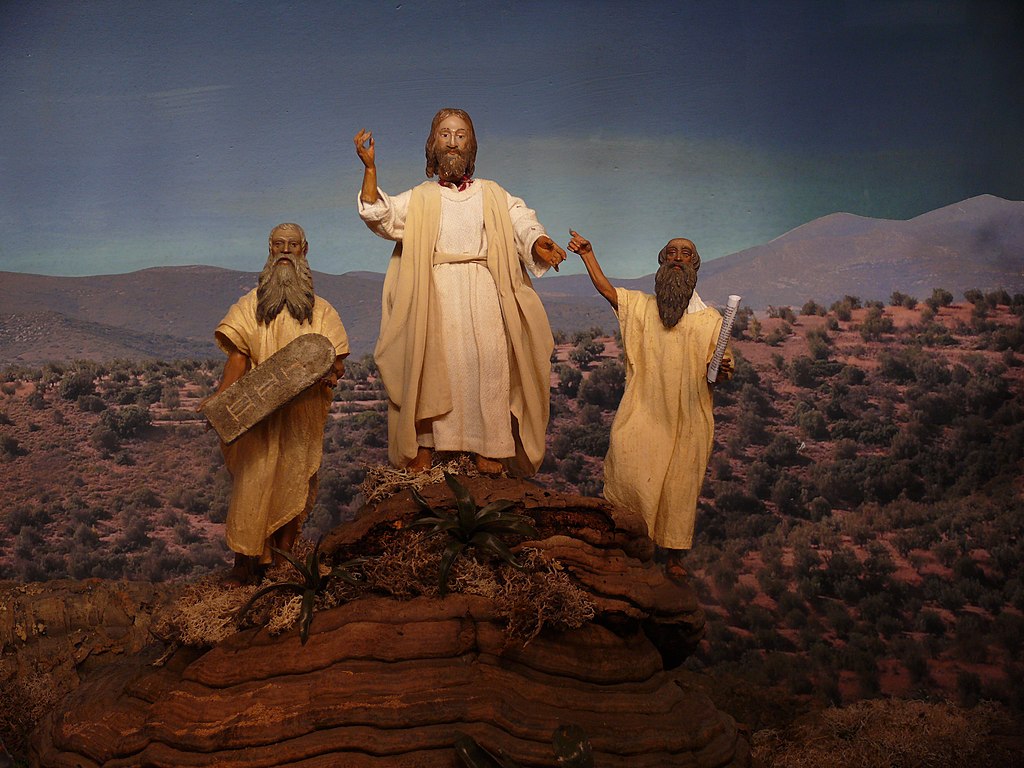
As church attendance falls out of fashion with new generations and for good reason, more people identify as “spiritual, not religious.” Some have literally come out as atheist. Others are angry, embittered, sad or lost. And some are just fine, thank you very much.
For those so inclined to explore what an evolved faith might look like for the 21st century, the following are 5 revolutionary concepts to transfigure Churchianity to an enlightened faith. All are rooted in Christendom’s rich pool of orthodoxy. Yet, they offer an alternative orthopraxy that may be appealing to the post-moderns who have “fallen away,” like me, and maybe you.
Yes, we will uproot western tradition. That’s a good thing. Our collective pain, disenchantment, and restlessness with the big “C” Church, riddled with vitriol and literally hell-bent on world domination is palpable. So let the healing, revolution and reformation begin. Let’s dig in.
1. Breath as Worship
Yes, what if our breathing in and breathing out, the very gift of life, could be considered worship? I think it is. Let’s consider mindful breathing in meditation or deep contemplation as a way to connect as oneness with God. From my book, “The Fullness of Love:”
“In Exodus 3:14, Moses, while on Mount Horeb asked God to reveal God’s name, to which the burning bush replied, ‘I AM THAT I AM.’ Father Richard Rohr, in his book, ‘The Naked Now’ posits a beautiful theory that according to Jewish law, Jews are not allowed to utter the name of God. However, the name ascribed that shall not be uttered, ‘YHWH,’ could not be uttered as it is intentionally not a name, but our very process of breathing. Thus, any attempt to speak it is ‘in vain.’ You cannot utter the name of the Nameless. We all simply breathe in YH, breathe out WH. The sound thereof mimics human breath. Thus, in every breath we take, humanity is praising God for breathing life into our world and our humanity. In our very first and very last breath, all humanity praises God.”
So, in taking this into consideration, mindfully breathing in contemplation of life and God’s mercy and majesty, is 100% worship. And we don’t need a praise team, a light show, or CCLI, at least until they figure out a way to license oxygen.
2. Christ as Sanctuary
As we abide in the living Christ as sanctuary, there is absolutely no church building requirement, mega or otherwise. And to that end, here’s another excerpt from my book:
“Let us look at Isaiah 2:2 that reads, ‘And it shall come to pass in the last days, that the mountain of the Lord’s house shall be established in the top of the mountains and shall be exalted above the hills; and all nations shall flow unto it.’ This was a promise tucked inside a prophecy of the coming kingdom, fulfilled in the first century at the time of the New Covenant and cemented at the destruction of the temple with brutal finality. Christ is the new temple, and all nations of people flow in, out, and through him in the ever present now.”
So, if Christ is the new temple, Christ is our sanctuary, too.
But what about the great big salvation metanarrative and the need to “accept Christ as your personal savior?” On the cross, Jesus announced the three most important words ever recorded in history: “It is accomplished,” meaning his work to die in solidarity with humanity, to become one with us, so that we could become more like God, was complete. This theory is not mine. It was propagated by an early church father, Irenaeus, who to provide a bit of gravitas, was taught by John the Apostle of Christ. So there’s that.
Jesus also said, “Forgive them, for they don’t know what they’re doing.” That’s all of us, because not one of us knows what we’re doing. We all need forgiveness and we’ve all been forgiven. So, there is nothing to “accept personally.” We just need to rest in Christ as oneness. That is the Gospel – the good news. Christ conquered death, the grave, and “sin.” Now, we all do.
3. Existence As Sacrament
Catholics believe that sacraments are signs of grace, granted by Christ for sanctification. There are seven sacraments in the Catholic tradition and just two in Protestantism. They consist of: Baptism, Confirmation, The Eucharist (Holy Communion), Penance, Anointing of the Sick, Holy Orders, and Matrimony. All touch on every aspect of life as a follower of Christ. All for some, but not all for everyone.
Protestants distilled the belief to baptism and communion. However, to be very clear, they are all human constructs. The Bible does not command or mention them with the exception of Jesus, who asked the apostles to “do this in remembrance of me.” Early followers regularly gathered for a “love feast,” which included breaking bread and wine in remembrance of Christ, which I believe should be a part of all of our lives today.
But as lovely as the rich pageantry of tradition that sacraments might be, they are exactly that. What if our human existence on this earth as Life’s Rich Pageant, in a nod to REM, one of my favorite bands, in its equally majestic, beautiful, turbulent and violent environment, could be seen as sacrament? It does. As we breathe worship, with Christ as Sanctuary, our very existence and how we live our lives are sacraments.
4. Religion As Love in Action
This one is easy peasy and the Bible is mercifully clear, but we chose to muck it up for two thousand years under a thousand denominations and empirical religion. James 1:27 states: “Religion that God our Father accepts as pure and faultless is this: to look after orphans and widows in their distress and to keep oneself from being polluted by the world.”
This speaks of “actionable love,” to others and us, and it means to live your faith by doing good every day, perpetrating random and not so random acts of kindness. No need for sacraments, temples, doctrines, metanarratives, dogma or tradition. Nada. Do good. Even better – do some good as a community. Get involved with a cause you are passionate about or just literally love your neighbor. That is “good religion.” The Bible can be distilled to 7 words: “Love God, Love People. And Love Yourself.”
5. Everything as One
We are all truly – one – as interconnected energy, molecules and atoms spinning around the universe. We exist in God, of God, for God and as God as God is in us, of us, for us, and as us. Everything is Oneness. When we immersively live inside these concepts, life is transformed, and religion is transfigured.
In this place race disappears. Hate disappears. Religious Nationalism disappears. Hell disappears. The Devil disappears. Religion disappears. War disappears. Borders disappear. Duality disappears. Death disappears. Love becomes God, as God is Love.
No, this is not a New Age thesis. These concepts go back to antiquity, were evolved by the early desert fathers, practiced throughout the church age, and are experiencing exponential growth today. Are these difficult concepts to wrap your head around? I don’t think so. They can be as automatic as breathing, yet when mindfully practiced, are transformative. Interested in community, connection, and communion? Please join us at The Fullness of Love to help build a new world. Peace of Christ to you.










